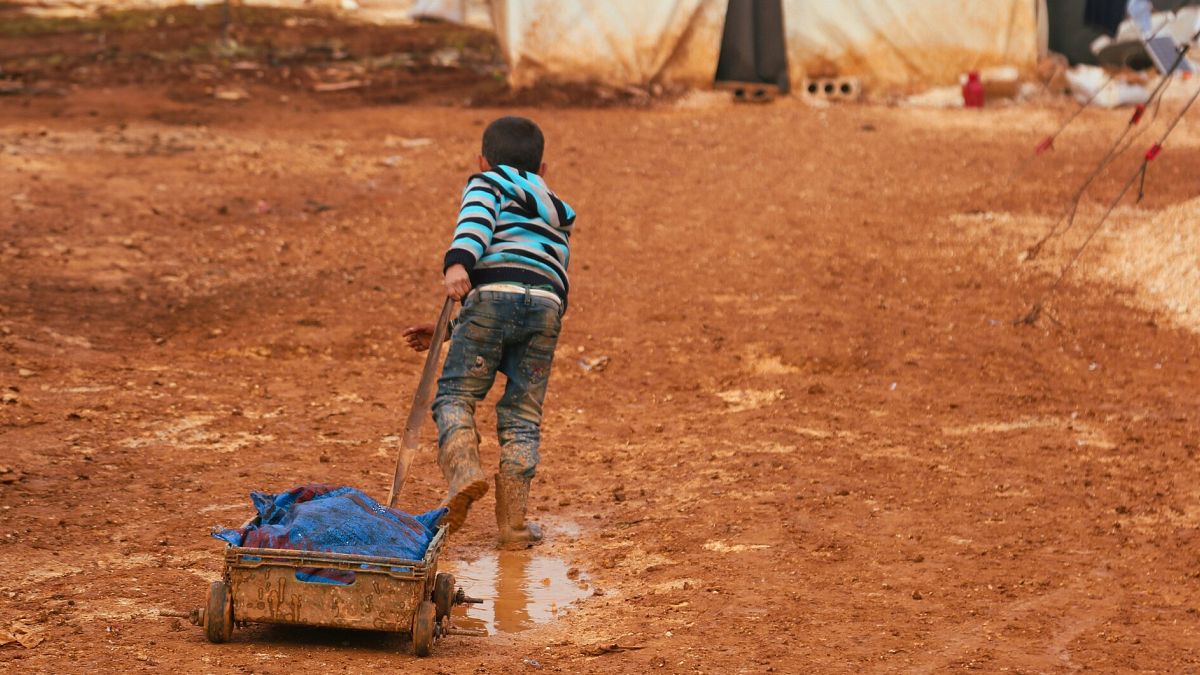Nearly 900 million people are simultaneously exposed to the escalating impacts of the climate crisis, from extreme heat and flooding to drought and toxic air pollution, according to a new United Nations report.
The 2025 Global Multidimensional Poverty Index, produced by the UNDP and Oxford Poverty and Human Initiative (OPHI) ahead of next month’s COP30 climate summit in Brazil, paints a stark picture of how climate change and poverty are increasingly intertwined.
For the first time, researchers have overlaid global climate hazard data with multidimensional poverty indicators, revealing that poverty is not just an economic issue but one “deeply interlinked with planetary pressures and instability.”
The burden of overlapping crises
Of the 887 million people identified as living in acute multidimensional poverty and exposed to at least one climate hazard, 651 million face two or more simultaneous threats, according to the report.
About 309 million people live in regions where three or four climate hazards overlap, a “triple or quadruple burden” that magnifies existing vulnerabilities.
The most widespread hazards are extreme heat, affecting 608 million poor people, and air pollution, impacting 577 million. Flooding threatens 465 million, while 207 million live in drought-affected areas.
“Understanding where the planet is under greatest strain and where people face additional burdens created by climate challenges is essential to creating mutually reinforcing development strategies that put humanity at the centre of climate action,” says Sabina Alkire, OPHI’s director and a co-author of the report.
Hotspots exist in South Asia and Sub-Saharan Africa
The report identifies South Asia and Sub-Saharan Africa as global hotspots for the overlap between poverty and climate risk.
In South Asia, the exposure is nearly universal: 99.1 per cent of poor people – about 380 million people – live in areas hit by one or more climate hazards.
In Sub-Saharan Africa, 344 million people face similar compounded threats.
Lower middle-income countries bear the heaviest burden, with 548 million poor people exposed to at least one hazard and nearly 470 million confronting two or more.
What is multidimensional poverty?
While poverty historically has been understood as a lack of money, researchers in modern times have developed a broader understanding of the mechanisms that drive it.
Although the UN also uses the international poverty line, set at an income of less than €2.50 ($3) per day, it has recently embraced the concept of multidimensional poverty.
According to the OPHI, the concept considers that a person who is poor can suffer from multiple disadvantages at the same time and provides a more comprehensive picture than income alone. They may have poor health or be malnourished. They may also lack access to clean water, food, power, education or stable employment.
The report illustrates this concept with real-life examples.
In Bolivia, Ricardo, a member of the Guarani Indigenous community, earns a meagre income as a day labourer. He shares a small house with 18 relatives, including his children and parents, with only one bathroom and a wood- and coal-fired kitchen between them. None of his children are in school, and every adult works informally.
“Their lives reflect the multidimensional realities of poverty,” the report says. “Even in a city where services such as water and electricity are available, overcrowding, insecure jobs and limited education perpetuate deprivation.”
There is urgency to act ahead of COP30
The report warns that these burdens will intensify as global temperatures rise.
Ahead of the climate summit next month, the UNDP is urging policymakers to prioritise the overlapping threats of poverty and climate hazards before they get worse.
“Our new research shows that to address global poverty and create a more stable world for everyone, we must confront the climate risks endangering nearly 900 million poor people,” says Haoliang Xu, UNDP’s acting administrator.
“When world leaders meet in Brazil for [COP30] next month, their national climate pledges must revitalise the stagnating development progress that threatens to leave the world’s poorest people behind.”

